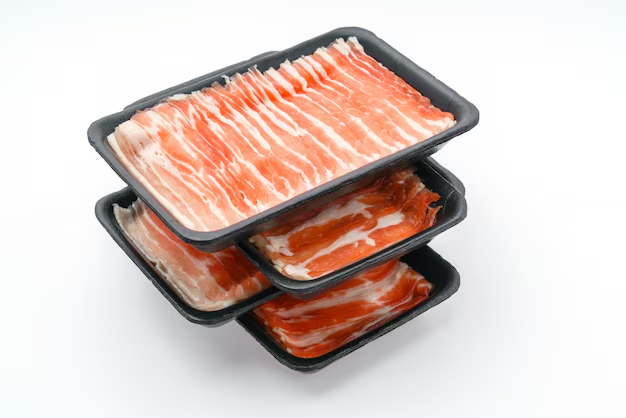How Long Can Homemade Jerky Keep in the Fridge? Understanding Shelf Life and Storage
When it comes to delicious, protein-packed snacks, homemade jerky stands out as a favorite choice. Whether you've perfected a recipe for beef, chicken, or even vegan jerky, understanding how to store it properly can make all the difference. So, just how long does homemade jerky last in the refrigerator and what can you do to extend its shelf life? Let's dive in and uncover everything you need to know about storing homemade jerky effectively.
The Basics of Jerky Preservation
What Makes Jerky Special?
Jerky is essentially meat (or a meat alternative) that has been cured, dried, and seasoned, creating a flavorful snack that's low in moisture. This low moisture content deters bacterial growth, making jerky a convenient and long-lasting snack.
Why Refrigerate Jerky?
While jerky is already designed to last outside the fridge, refrigeration can extend its freshness and shelf life. If moisture content is minimized through proper preparation and dehydration, storing jerky in the refrigerator is a precaution that ensures optimal conditions for longevity.
Determining the Shelf Life of Homemade Jerky
Factors Affecting Shelf Life
The longevity of homemade jerky in the refrigerator depends on a few key factors:
- Moisture Content: The drier the jerky, the longer it lasts. Proper dehydration prevents mold and bacterial growth.
- Ingredients and Additives: Preservatives like salt and curing agents can extend shelf life.
- Storage Conditions: Proper sealing and temperature stability are crucial.
General Shelf Life
While commercial jerky can last for months, homemade jerky has a more limited timeline. Here are some general guidelines:
- Properly Dried and Stored: Homemade jerky can last between 1 to 2 months in the fridge.
- Vacuum-Sealed Packages: Expect a slightly longer shelf life, pushing toward the 3-month mark.
Making Jerky Last Longer
Tips for Optimal Dehydration
- Uniform Slices: Cut meat into uniform pieces to ensure even drying.
- Adequate Drying: Dry jerky until it's sufficiently moisture-free to break, not bend.
- Dehydrator Settings: Follow manufacturer instructions for meat types or aim for around 160°F for optimal results.
Storage Solutions
- Use Airtight Containers: Keep moisture out with airtight plastic or glass containers.
- Vacuum Sealing: This is ideal for long-term storage, reducing exposure to air.
Flavor Enhancements That Preserve
Certain spices, like garlic and black pepper, have preservative properties, potentially extending your jerky's lifespan while enhancing flavor.
Recognizing Spoiled Jerky
Signs of Spoilage
Even with precautions, jerky can sometimes spoil. Be on the lookout for these signs:
- Texture Change: If it becomes overly sticky or slimy.
- Unpleasant Odor: A sour or rancid smell is a red flag.
- Mold or Discoloration: Visible mold or significant color changes mean it's time to discard.
📝 Quick Safety Check:
- Smell and visual checks are your first line of defense—when in doubt, throw it out.
Related Storage Tips
Freezing Jerky
For extended storage far beyond the refrigerator's capacity:
- Freezer Storage: Jerky can last up to 6 months if sealed airtight.
- Thawing: Don't thaw at room temperature; instead, place it in the fridge overnight.
Alternative Preservation Methods
Exploring methods like vacuum drying or experimenting with different curing agents can also boost the shelf life and quality of homemade jerky.
Practical Storage Solutions and Summary
🗃️ Handy Storage Tips:
- 🥶 Refrigeration: Keeps jerky stable for up to 2 months.
- 📦 Airtight & Vacuum Packs: Essential for maintaining freshness.
- 🌡️ Monitor Conditions: Consistent fridge temperature is key.
- 🧄 Add Spices: Natural preservatives that enhance flavor.
⏰ Shelf Life at a Glance:
| Storage Method | Typical Shelf Life |
|---|---|
| Fridge (Airtight) | 1-2 months |
| Fridge (Vacuum-Sealed) | Up to 3 months |
| Freezer (Airtight) | Up to 6 months |
Homemade jerky remains a versatile and delicious snack when stored with care. By understanding key factors like moisture content and preservation techniques, you can enjoy your flavorful creation for months. Remember, effective storage is all about minimizing moisture, controlling temperature, and employing the right packaging methods. By doing so, you'll ensure that each bite remains as tasty as the day it was made!

